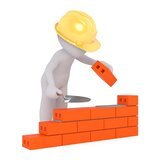How to learn Dutch? Tip 9 How do you avoid the fear and develop your confidence in speaking Dutch?
Why should you make mistakes?
Do not expect from yourself to start speaking well without mistakes. You will make plenty of them. Sometime people will laugh but this is a part of your learning. Do not take it seriously. People are not laughing at you. They are laughing about your mistakes. Laugh along with them. If you are going to take people’s laughing seriously, you will develop a fear of speaking. It will become a huge obstacle in developing of your speaking skills. The more you will pay attention to people’s reaction the more you will develop this ‘handbrake’ on your speaking. Of course, there are people who are laughing at other people without any respect. Try to avoid such people in your life. They will not bring any value to your life. Choose people to speak with.
Making mistakes is a necessary thing when you learn a new language. It’s an important part of learning. You should make mistakes otherwise you will learn nothing!
How can you build your confidence in speaking?
You cannot do it in one go. You need to build it like a house, using small blocks. All these small blocks are small successful conversations where you feel you were able to ask something and successfully reply in Dutch. It is a feeling of success of your small achievement.
Example: You asked something in Dutch in a shop. You understood the answer. It was just one question and one answer but it went well. You did it! You felt good about your conversation. Next time you will add another question and use new words. You will have a successful conversation (achievement) again. It is a feeling of a small achievement, a feeling of success that builds your confidence.
Confidence of speaking = summary of small successful conversations (achievements)
Where can you start a small conversation?
- Use every opportunity to start a small conversation. Just ask a question in your supermarket even if you already know the answer: Waar hebben jullie suiker?
- Use every opportunity to ask a question to your colleague at the coffee machine or during your lunch break: Drink jij veel koffie?
- Use every opportunity to start a small conversation with your neighbour: Het is (geen) goed weer vandaag, hè?
Do not postpone this to the next time! Just do it! Just ask it! Speaking is about doing, not about thinking like, I know how to do it.
Do you want to build your Active vocabulary? Ask 10 questions to Dutch people every day!
What’s next? Learning tip 9 How do you become the manager of your Dutch conversations?
| A = aa | N = en |
| B = bee | O = oo |
| C = cee | P = pee |
| D = dee | Q = quu |
| E = ee | R = er |
| F = ef | S = es |
| G = gee | T = tee |
| H = haa | U = uu |
| I = ie | V = vee |
| J = jee | W = wee |
| K = kaa | X = iks |
| L = el | Y = ei |
| M = emm | Z = ei |
Learn Dutch by Yourself:
Learn Dutch with us!
Enrol in our next Online Dutch Course >


